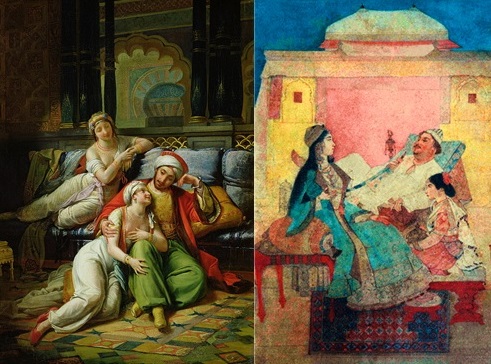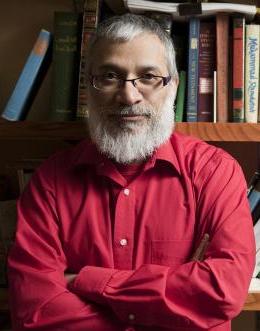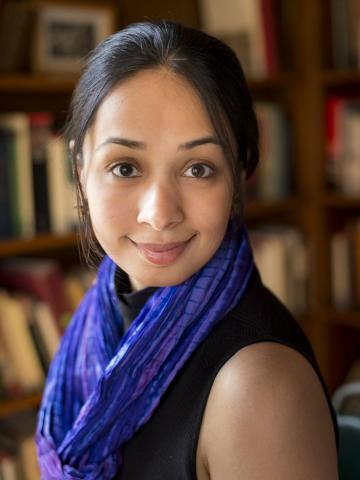HUMS 206, Interpretations - The Arabian Nights

Course Description:
The medieval Arabic cycle of stories known as The Arabian Nights or The Thousand and One Nights is a classic of world literature. The course is divided into two components: in one, we read the Nights and discuss both its dominant themes—inter alia deceit, love, sex, revenge, violence, and justice—and its storytelling contexts and antecedents (e.g. the Middle Persian Tales of Bidpai). And in the other, we explore the ways in which its themes and tales have been adapted and appropriated by later authors (e.g. Barth, Gaiman, and Poe in English, Borges in Spanish, Potocki in French and Polish, and Naguib Mahfouz in Arabic); and by filmmakers such as Korda, Pasolini and Barron.
Syllabus:
Course is capped at 36 students. Priority is given to Humanities Majors.
Fulfills HU distribution requirement.
Led By:

|
Professor Shawkat ToorawaProfessor Toorawa’s scholarly interests include: classical and medieval Arabic literature, especially the literary and writerly culture of Abbasid Baghdad; the Qur’an, in particular hapaxes, rhyme-words, and translation; the literatures of Mauritius; modern poetry; and SF film and literature. Professor Toorawa books include the study Ibn Abi Tahir Tayfur and Arabic Writerly Culture: a ninth-century bookman in Baghdad (RoutledgeCurzon 2004), an edition and collaborative translation of Ibn al-Sa’i’s 13th-century Consorts of the Caliph: Women and the Court of Baghdad (NYU 2015), and the edited anthology The City That Never Sleeps: Poems of New York (SUNY 2015). He is preparing an edition and translation of Ibn al-Marzuban’s The Superiority of Dogs to People, a 10th-century work on friendship, and the co-edited collection Arabic Belles Lettres (Lockwood, 2019) is out this year. Toorawa is active as a Director of the School of Abbasid Studies; as an executive editor of the Library of Arabic Literature (an initiative to edit and translate the premodern Arabic literary heritage); and as host of The dr T projecT. |
|
|
Professor Ayesha RamachandranProfessor Ramachandran is a literary critic and cultural historian of early modern Europe. Her recent work focuses on Europe’s relations with an expanding world—her first book, The Worldmakers (University of Chicago Press, 2015) charts transnational encounters and the early mechanisms of globalization from the late fifteenth to the early eighteenth centuries. She has published articles on a range of topics: on Tasso’s use of Petrarch’s Canzoniere in the Gerusalemma liberata; on the importance of Lucretius in the work of Edmund Spenser; on Montaigne’s engagements with Italy and with cosmographic texts in the Essais; on Mughal miniatures from the court of Jahangir and the challenge of cross-cultural comparative studies; and on fundamentalism in early modernity, among other subjects. |
If you are interested in or have enjoyed this course, you may wish to explore:
- NELC 119a / CLCV 419a, Ancient Empires
- HUMS 128a / NELC 128a, From Gilgamesh to Persepolis: Introduction to Near Eastern Literatures
- NELC 338a / ARBC 173a / ARBC 598a / CPLT 828a / LITR 303a / NELC 614a, Tracing the Image of the Arab “Other”
- HUMS 130a / LITR 130a, How to Read
